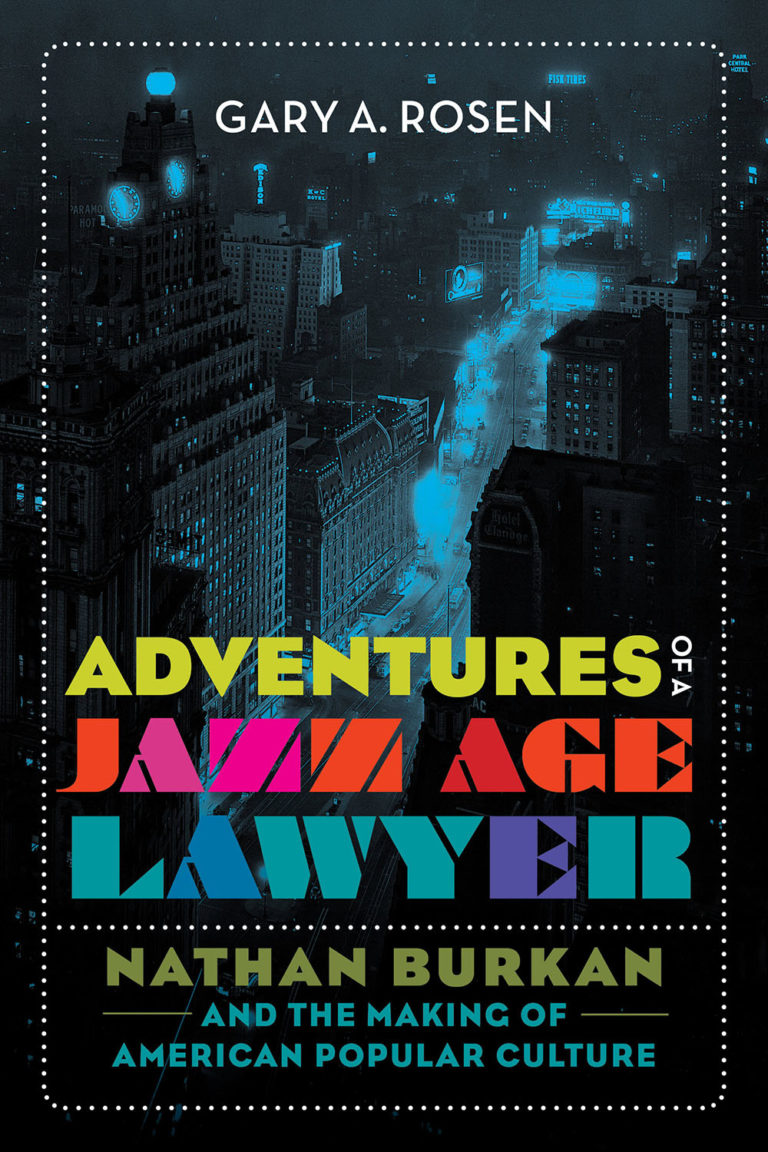The Jazz Singer: Nathan Burkan and Al Jolson
In 1925, George Jessel made a splash on Broadway in the role of Jack Robin, the Jolson-like character in Samson Raphaelson’s stage adaptation of “The Day of Atonement”―retitled The Jazz Singer. Warner Brothers purchased the screen rights to the story for $50,000, with the intention of adapting it for the silent screen, giving it a Vitaphone score, and having Jessel recreate his Broadway role. Production was to begin in Hollywood in May 1927. As Warner Brothers developed the screen scenario, the story was given a new epilogue. Raphaelson’s play ended with Jack Robin stepping into his dying father’s pulpit on Yom Kippur, rejecting the siren call of Broadway. The Warner scenario added a final scene in which Jack Robin’s apostasy is complete―he is seen performing on a Broadway stage, his widowed mother in the audience.
Only a few weeks before production was scheduled to begin, Warner Brothers made a fateful decision: “Jessel’s singing in a synagogue and in a Broadway theater will be Vitaphoned.” Vitaphone would not simply provide background music; it would for the first time be integrated into the action, the “diegesis,” of a narrative film, if only to the limited extent of “reproducing vocal numbers and their accompaniments” in a story about a singer.
This came as news to Jessel, who felt that he was entitled to additional compensation if he was going to sing as well as act. In early May, as elaborate preparations were being made to equip Warner’s Hollywood studio for synchronized sound, Jessel arrived in Los Angeles still holding out for more money. Jolson was also in town for a two-week engagement in Big Boy, to be followed by a four-week San Francisco run. Jessel and Jolson, who had known each other for years, spent some time together palling around Los Angeles, but Jolson apparently said nothing about any impending change in plans for The Jazz Singer.
Unbeknownst to Jessel, Nathan Burkan, back in New York, was negotiating with Sam and Harry Warner for a deal to give Jolson the role he had long wanted to play in the movies. (Indeed, to keep Jessel off the scent until it was a fait accompli, Burkan signed the contract in New York using Jolson’s power of attorney.) The agreement called for Jolson to perform five songs in addition to chanting Kol Nidre for Vitaphone. Of particular importance after the D.W. Griffith affair, the contract gave Jolson the right, “at any time,” to screen rushes and hear playbacks of his songs, and to be present for “cutting, assembling and titling.” Overall, though, Burkan did not drive a hard bargain. Jolson’s compensation was $75,000 (plus $2,500 to cover Burkan’s fee), with no profit participation. “When this chance to portray a role which so vitally concerns me and my people was offered,” Jolson told reporters, “I felt that it was only right to accept gladly. I have no present intention of ever appearing in another movie. The Jazz Singer will be my only living document.”
Blindsided by Jolson’s treachery―he learned about it from the newspapers―Jessel was furious. He was, almost certainly, the source of an “explanation” for the star-switch that first surfaced even before Jolson arrived on the soundstage and that persists to this day. As reported in Billboard:
An explanation of the mystery as to why Warner Brothers substituted Al Jolson for George Jessel as the star of the film version of The Jazz Singer has come to light and is going the rounds here. The story is that, thru Nathan Burkan, New York attorney, $1,000,000 was turned over to the Warners on condition that Jolson appear on the screen. The Warners were enabled to make the picture without a cent of their own money being involved.
Warner Brothers was a public company, with Goldman Sachs financing behind it. For a project that was increasingly emphasizing music as it was being developed, Warner got Jolson, the outstanding popular singer of his generation and the inspiration for the story, rather cheap. Casting Jolson in place of George Jessel made perfect sense as a financial and artistic proposition. There is no need to posit the intervention of a shadowy million-dollar bagman, except perhaps as a salve to Jessel’s bruised ego.
